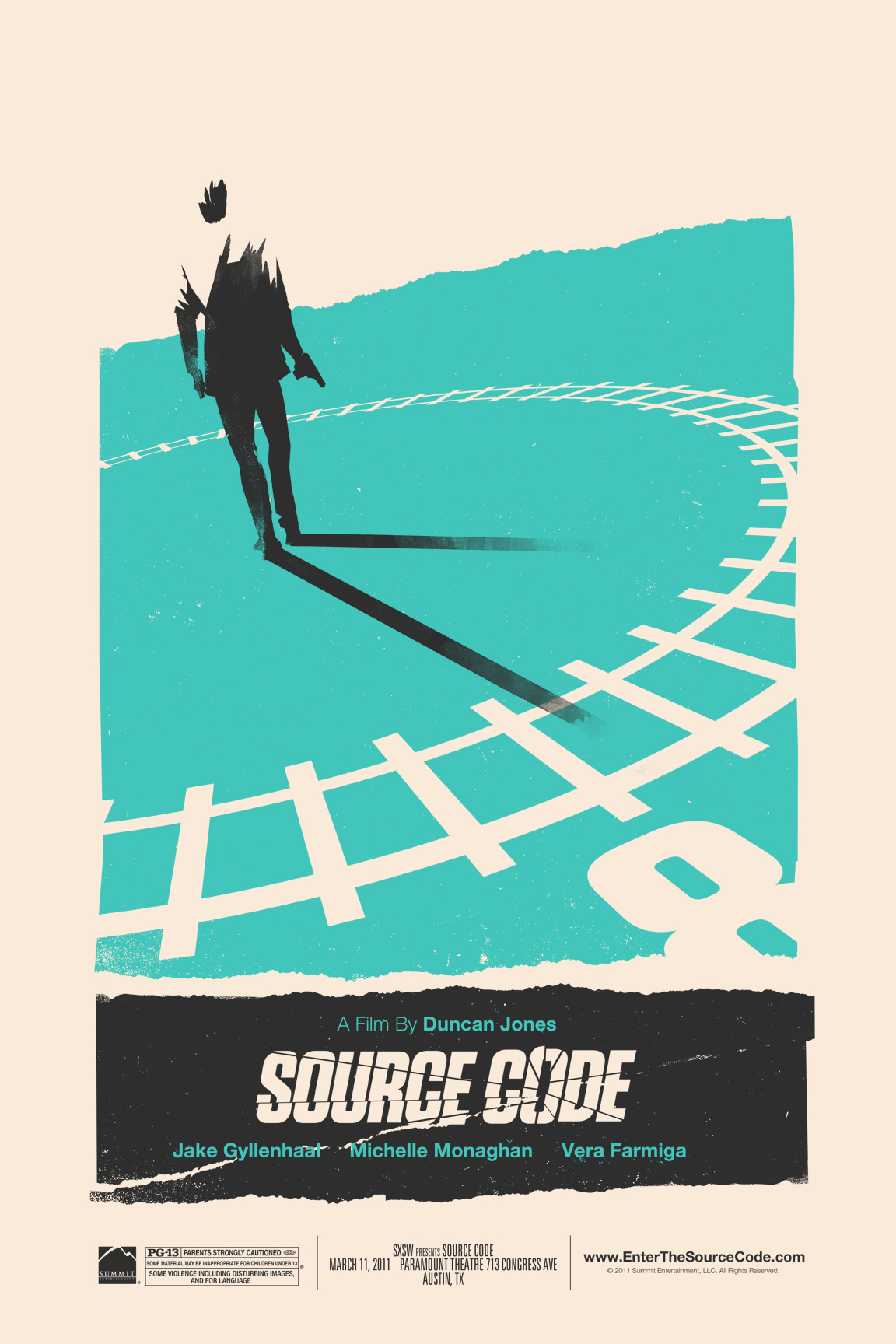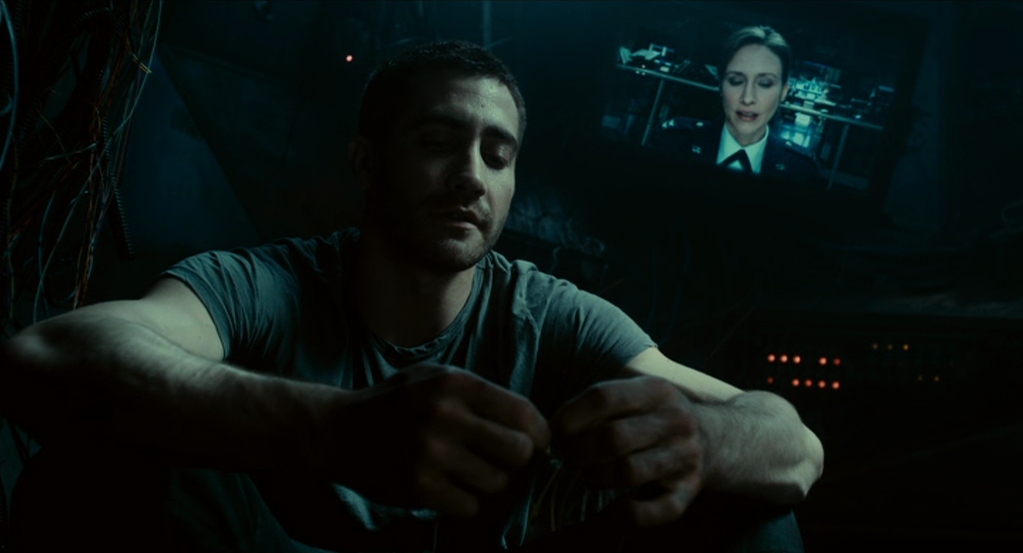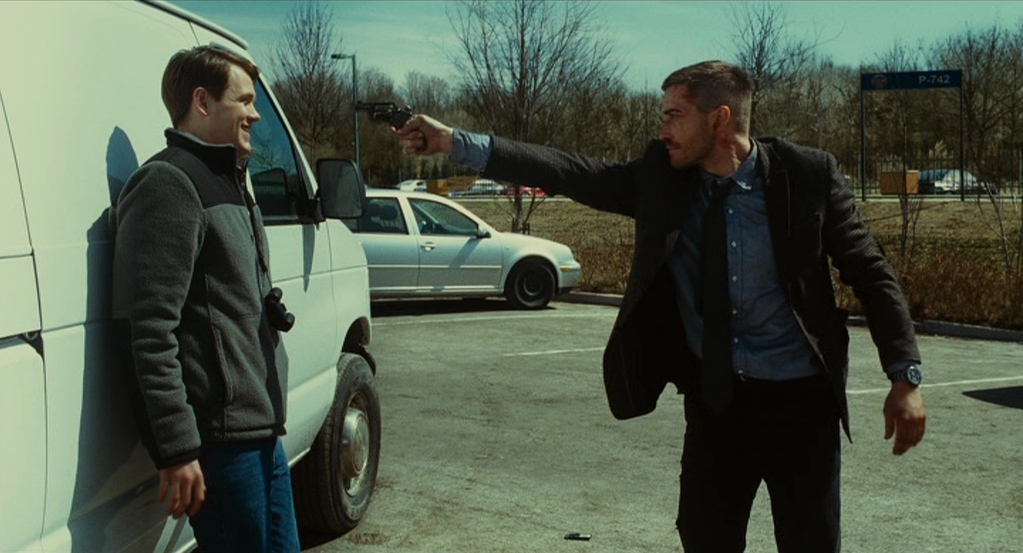

“The world is Hell. We have a chance to start over in the rubble. But first, there has to be rubble.”
“How do you know what a dirty bomb is?” my wife asked when, after the threat of such a device had been established in Duncan Jones’ Source Code, I was able to explain it to her without consulting the google machine. “I took some nuclear engineering classes in college,” I replied. She nodded to herself and was silent for a beat, then turned on me with feigned accusation in her voice. “Or you’re a terrorist!”
There are two different approaches that one can take when discussing Source Code. The first is to consider its merits as a cinematic experience. Does it sweep you up in its narrative, surprise you, engage your emotions? On these grounds, I can happily answer in the affirmative. Utilizing the formula established by Groundhog Day, Duncan Jones’ Ben Ripley-penned sophomore effort plops an amnesiac Jake Gyllenhaal into a thrilling eight-minute simulation that he must live through repeatedly in an effort save millions of lives from an imminent terrorist threat. It’s an edge-of-your-seat treat for the bulk of its runtime, and as it expands to encompass the main character’s situation outside of the simulator, and the technological breakthrough that has allowed him to save the world, opportunities abound for glancing at human nature from peculiar angles.
Jake Gyllenhaal is Sean Fentress, a sharply-dressed cube dweller who wakes up from a nap on a commuter train in a state of disorientation. The problem is that he believes he is someone else entirely; he is convinced that he is Colter Stevens, a U.S. Army pilot who was commander of a unit in Afghanistan until… now, when he woke up on the train. He’s supposed to be serving his country, not making small talk with a personable stranger named Christina (Michelle Monaghan), dodging coffee spills and getting his ticket punched. After eight confusing minutes the train explodes and Sean/Colter awakes again. This time he finds himself strapped into a clunky device in the dank confines of a mysterious capsule that’s freezing cold and leaking hydraulic fluid. Then a television screen flickers to life and Goodwin (Vera Farmiga) begins to debrief the bewildered soldier. She is ambiguous and evasive, but manages to convey to Stevens that he is indeed an Army pilot; and that he has been granted an opportunity to save the city of Chicago if he can discover who planted the bomb on the train.

A new technology, called “source code,” enables scientists to tap into the residual short-term memories of the recently-dead and build a simulation that allows a living specimen to run through various iterations of their final moments; something akin to the spacetime jumps in Quantum Leap. In this case, Colter Stevens is reliving the final moments of Sean Fentress’ life. Although they’ve already killed everyone aboard the train, intelligence indicates that the train bomber intends to detonate a dirty bomb in the middle of Chicago. Thus, identifying the subject is Stevens’ sole objective. But of course, Stevens is not content with Goodwin’s elusive answers or the jargon thrown at him by her supervisor, Rutledge (Jeffrey Wright). Nor is he willing to abandon Christina to a fiery fate over and over again, even though he is told that she has been dead since earlier that morning. And so we’re caught in a whirlwind narrative which finds Stevens making runs through the simulation to hone in on the organization he’s unwillingly working for and his own fate in Afghanistan while falling in love with Christina.

I mentioned two approaches to discussing Source Code. The second one involves interrogating its mechanics to see if they hold up or if they’re just an intriguing support for the main narrative. In this case, unfortunately, the latter is true. Thematically it feels like a logical next step after Moon, reiterating ideas of replication, distrust of authority, isolation, personal sacrifice. And there’s no shortage of emotional pangs, suspense, and explosive action either. But once the smoke clears there are quite a few questions that cannot be answered in a satisfactory manner. Running through the various plot holes is a can of worms I don’t wish to open, but in my estimation, the most glaring of these stems from an ending that renders most of the buildup nonsensical in an effort to be uplifting.
Thankfully, these foibles do not reduce the film’s entertainment value, nor do they affect its ability to make the viewer think about some cerebral subject matter. Strip away the effects, and it’s a classic sci-fi story that takes a science-fiction quandary and explores its implications with an increasingly pulpy tone. I’m willing to cut some slack for films like that, even if they stumble along the way.